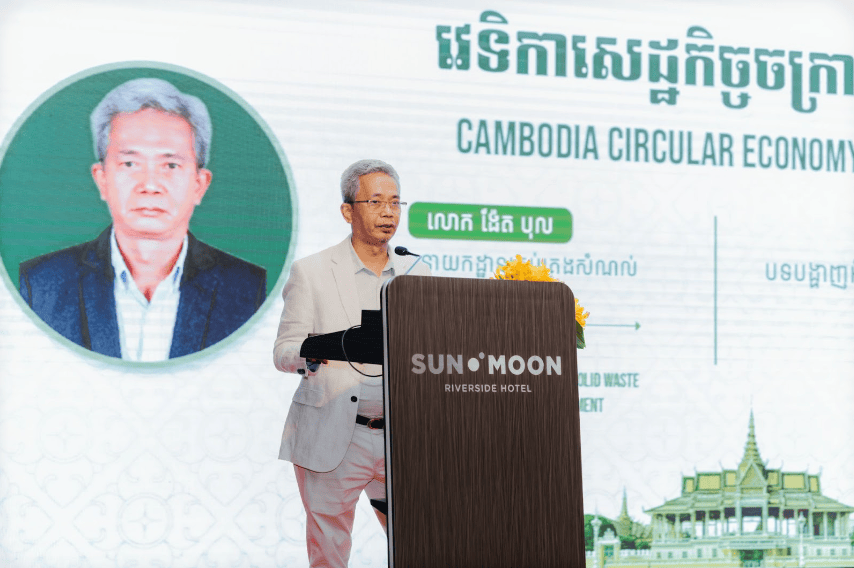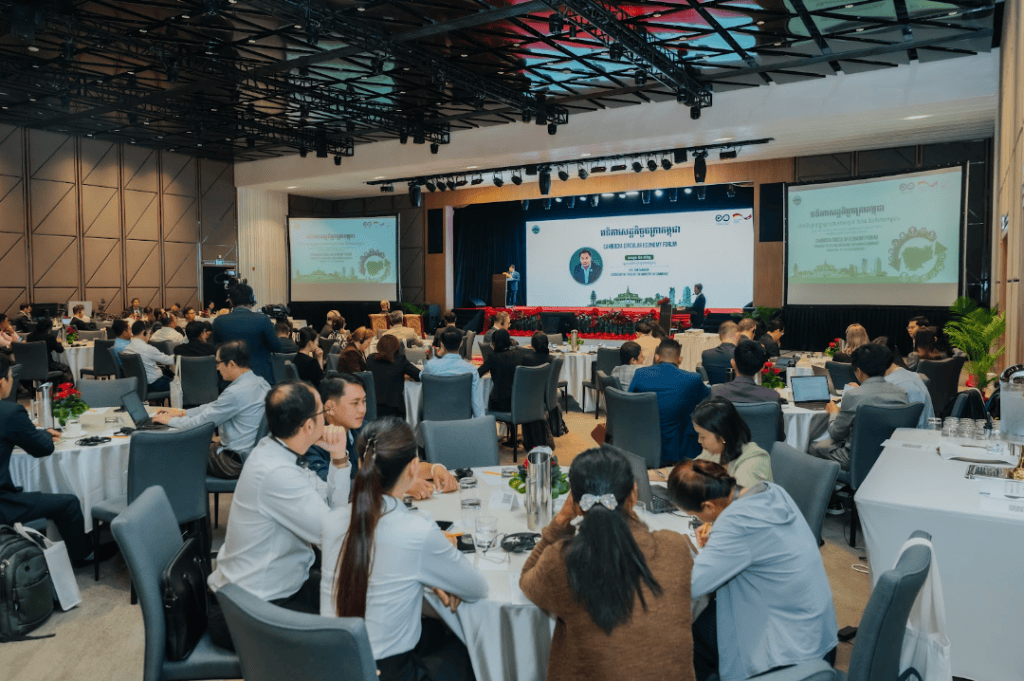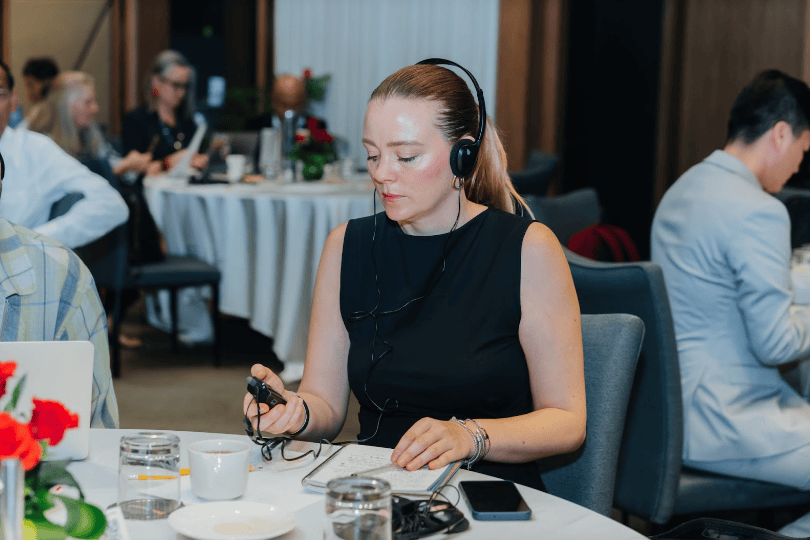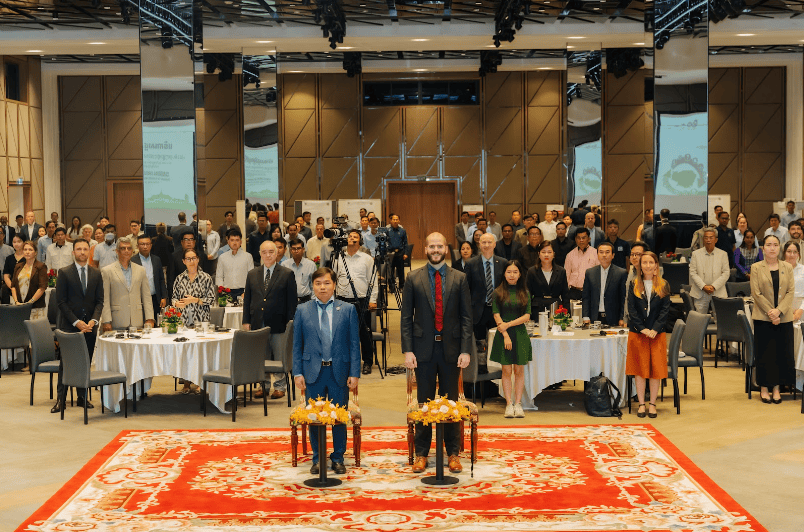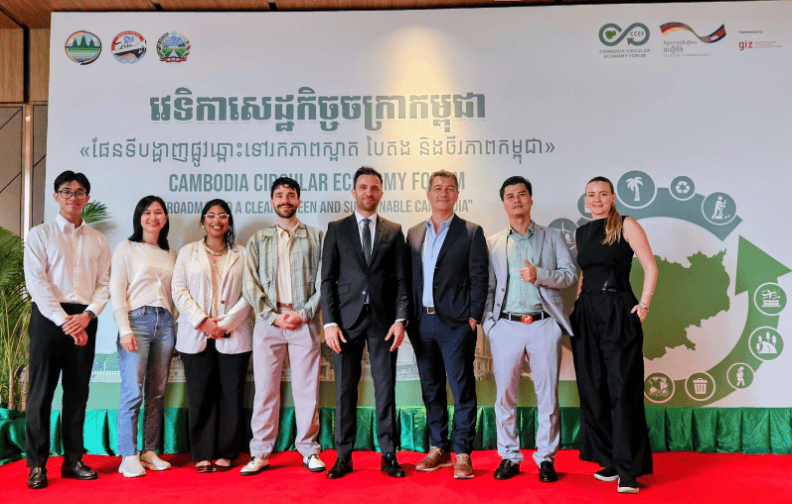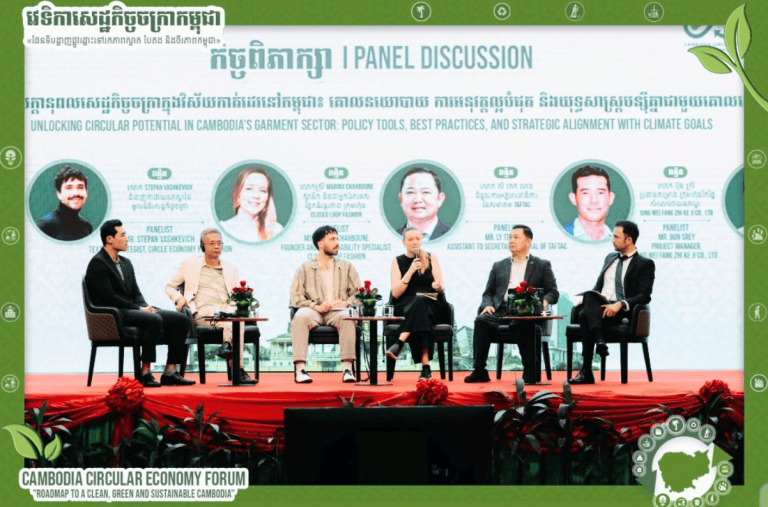Last week, Marina Chahboune, Founder of Closed Loop Fashion was invited to join the Cambodia Circular Economy Forum (CCEF) with the title “Roadmap to a Clean, Green & Sustainable Cambodia”, held in Phnom Penh from 10 to 12 September 2025, as a panelist in the FABRIC Session titled “Unlocking Circular Potential in Cambodia’s Garment Sector: Policy Tools, Best Practices, and Strategic Alignment with Climate Goals”.
FABRIC is an initiative by the German Federal Ministry for Economic Cooperation and Development (BMZ), implemented by the German development agency GIZ for promoting Sustainability in the Textile and Garment Industry in Asia. The dedicated panel session was designed to explore how policy and regulatory frameworks can support effective textile waste management practices and textile-to-textile recycling. It also highlighted international best practices and global trends, with a focus on adapting these insights to the Cambodian context. Speakers examined barriers and opportunities to strengthen Cambodia’s textile waste systems, including aspects such as capacity building, responsibilities and enforcements, waste valorisation and investment and feasibility of building a localised recycling infrastructure.
The panel discussion was moderated by Mr. Hasso Anwer, Project Director of FABRIC Cambodia, GIZ. Panelists included Mr. Nget Bol, Deputy Director of the Department of Solid Waste Management, Ministry of Environment, who had also delivered a keynote on “Cambodia’s Regulatory Roadmap for a Circular Garment Sector: Advancing Sustainability in Alignment with National Strategies”, Mr. Stepan Vashkevich, Textile Strategist at Circle Economy Foundation, Mr. Choon Yik Thong, Head of the Sub-Committee on Sustainability at the Textile, Apparel, Footwear & Travel Goods Association in Cambodia (TAFTAC), Mr. Bun Srey, Compliance Manager at Xing Wei Fang Zhi Ke Ji Co. Ltd, and Marina Chahboune, Sustainability Specialist and Founder of Closed Loop Fashion.
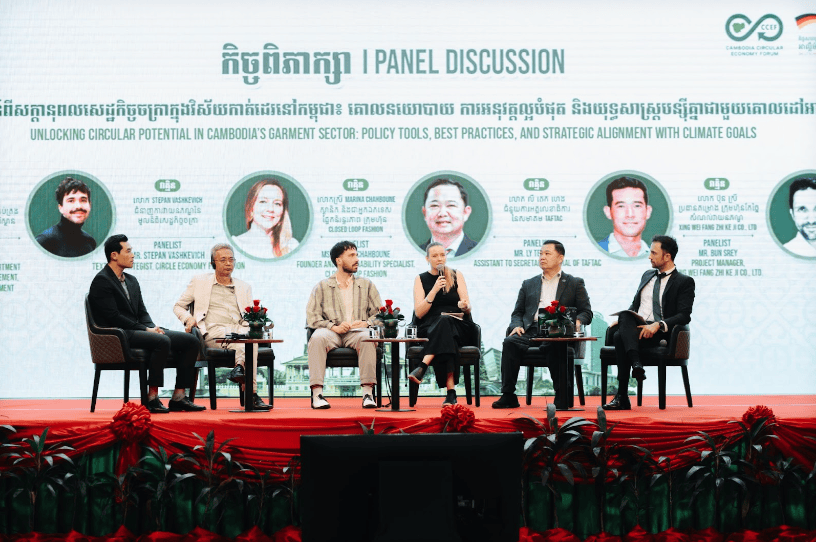
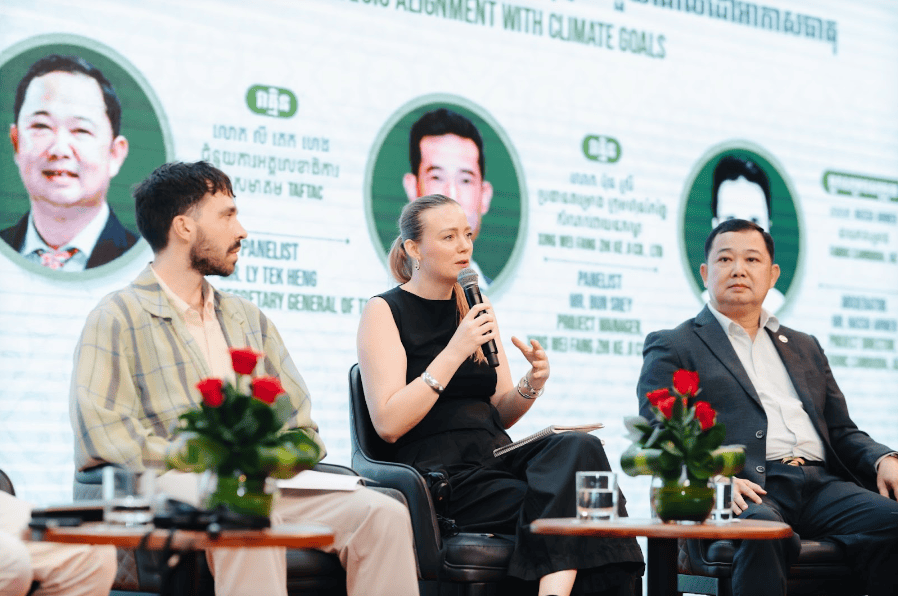
During the session, Marina shared Closed Loop Fashion’s experience as the implementing partner of the GIZ FABRIC pilot programme Textile Waste Improvement Programme for Circularity (WIP4C) in Cambodia. Through both the WIP4C and the ongoing Circular Fashion Partnership (CFP) programme, CLF has worked with more than 40 garment factories to implement our proprietary Textile Waste Management Standard (TWMS by CLF). Drawing on several years of on-the-ground engagement with manufacturers, she discussed the systemic barriers that continue to limit effective textile waste management, including challenges in accessing waste as a reliable feedstock for recycling, the need of greater transparency and systemic coordination of the current waste handling sector and existing stakeholders in the space and to properly identify and build a business case for waste valorisation and circular supply chains through accurate primary data and feasibility.
Organised in partnership with GIZ Cambodia, the CCEF serves as a national platform to foster dialogue, knowledge exchange and collaboration on circular solutions. The discussion strongly highlighted the enablers for circularity in Cambodia’s textile and apparel industry, with different actors from across the circular supply chain sharing their perspectives on the policy and regulatory frameworks needed to drive change. Beyond textiles, the forum also addressed sustainable tourism, agriculture and waste management, reinforcing Cambodia’s ambition and mission to build a green and future-ready economy.
